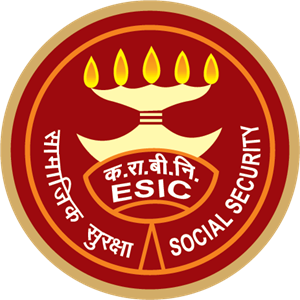
What is ESIC?
He provides financial security to the Employees State Insurance Corporation Scheme members in case of an untimely health event. The scheme provides medical benefits, disability benefits, maternity benefits, unemployment allowance etc.

At one time, when the industry was still in its nascent stage, the people of India still relied on a large assortment of imported goods and services. These goods and services were provided by developed or developing parts of the world. Therefore, India, being a self-reliant country, has started developing the working class sector to ensure that manufacturing and labor employment in the country remain.
A workforce was developing in the country, which was dedicated to ensuring that industry began to grow and flourish in India. To ensure that these workers were protected in terms of health and finance, Parliament enacted the Employees' State Insurance Act, 1948 (ESI Act). It was the first major law to increase social security for workers. The ESI Act covers health-related incidents that are exposed to workers on a daily basis. This can include any type of illness, temporary or permanent disability, maternity, illnesses contracted from a workplace, death due to employment and any type of injury resulting in reduced wages or earning capacity. That ESIC Act acts as a financial safety net for workers against these diseases.
Key features and benefits of ESIC:
The Employees State Insurance Corporation offers many attractive features and benefits. It not only provides medical benefits, but also comes with a level of financial security such as unemployment, etc. in times of financial security. Some of these are listed below:
Medical Benefits: The Employees State Insurance Corporation takes care of a person's medical expenses by providing proper medical care. This cover comes into effect from the first day of employment of the person.
Disability Benefits: If an employee is disabled, ESIC ensures that the employee is paid their monthly salary for the duration of the injury in case of temporary disability or for the remaining life of the employee in case of permanent disability.
Maternity Benefit: ESIC helps an employee to welcome her child to the home. The ESIC provides a total of 100% of the average daily wage for a period of 26 weeks from the time of going into labor and 6 weeks in case of abortion. A 12-week salary is provided in case of adoption.
Sickness Benefit: ESIC ensures that cash flows into the employee's home during medical leave. 70% of the average daily wage of an employee is paid during a medical leave for a maximum period of 91 days in a two-day remuneration period.
Unemployment Allowance: ESIC provides monthly cash allowance for a maximum period of 24 months in case of permanent invalidation due to non-employment injury or involuntary loss of employment.
Dependent's benefit: If the employee suffers untimely death due to injury at the place of employment, ESIC will provide monthly payments among the surviving dependents.

Who are eligible for ESIC?
To cover the benefits offered by the Employees' State Insurance Corporation (ESIC), a person must meet certain criteria set by the committee. ESIC Scheme in force
A person working in a non-seasonal factory with more than 10 employees. This criterion applies under section 2 (12) of the Act.
From 1 January 2017, the salary limit of the employee to fall within the scope of ESIC scheme is Rs. 2, 1,000.
ESI Coverage:
The scheme has also been extended to hotels, shops, theaters and preview theaters, restaurants, newspaper establishments and road-motor transport undertakings. The scheme has also been expanded to private educational and medical institutions that have employed 10 or more people. It is applicable only in some states and union territories.
The ESI scheme has been implemented across the country. The scheme has been implemented in phases in every state except Arunachal Pradesh and Manipur in India. The scheme has been implemented in all union territories except Daman and Diu, Dadra and Nagar and Lakshadweep islands.
The ESI scheme has been notified out of a total of 325 completed districts out of a total of 393 districts. Out of these notified districts, 89 districts partially implemented the scheme.
Documents required for ESI registration:
The following documents are required when registering a company or establishment with ESIC:
Certificate of registration of company or establishment (in case of private limited company)
License or a registration certificate which can be obtained under the Shops and Establishments Act or Factories Act
Certificate of registration for every unit and for commencement of production of factories
Detailed list of employees with their monthly compensation
List of partners, shareholders and directors of the company or establishment
Bank statement of the company with sufficient evidence about commencement of operations
Address proof and PAN card of the business establishment or company




